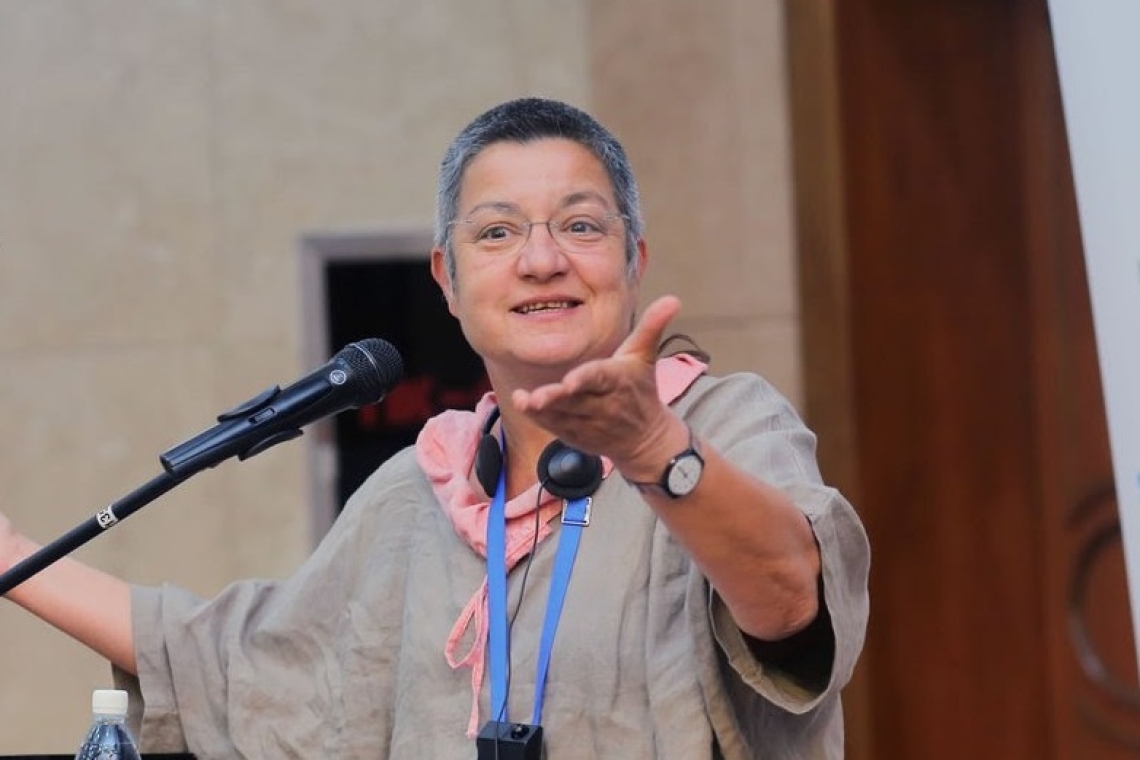BERİL ESKİ
Forensic medicine expert and human rights defender Prof. Dr. Şebnem Korur Fincancı has been issued a warrant to be forcibly brought to court in a trial where she faces charges under Article 301 of the Turkish Penal Code (TCK) for her comments on torture. The case centers on an accusation of "publicly insulting the Turkish state," a crime under Article 301, due to remarks Fincancı made in her area of expertise.
The first hearing of the trial took place today at the 14th Criminal Court of First Instance in Istanbul. Fincancı, a former president of the Human Rights Foundation of Turkey, and her lawyer Meriç Eyüboğlu did not attend. Representatives from the German Consulate, Amnesty International, the Equal Rights Association, P24, the Human Rights Foundation of Turkey, and the Media and Law Studies Association (MLSA) observed the session.
Since the court had not received Fincancı’s written notice explaining her absence, it ruled that she must be forcibly brought to the next hearing, scheduled for January 27, 2025, at 11:00 a.m.
About the case
The indictment, prepared by the Istanbul Chief Public Prosecutor’s Office for Press Crimes, states that the investigation against Fincancı was initiated following a complaint made through the Presidential Communication Center (CİMER). The complaint refers to comments Fincancı made during an interview on Erkam Tufan Aytav’s YouTube channel, where she discussed the case of Orhan İnandı, a figure accused of being a senior member of the Gülen movement, which Turkish authorities label as the "Fethullah Terrorist Organization" (FETÖ).
Fincancı suggested in the interview that İnandı, who was apprehended in a Turkish National Intelligence Organization (MIT) operation and brought to Turkey from Kyrgyzstan in August 2023, might have been subjected to torture. This remark is the basis of the prosecution's claim that she created the perception that torture occurred, and that she did so with the intent of "publicly insulting the Turkish state."
Orhan İnandı was sentenced to 21 years in prison for "leading an armed terrorist organization." After his extradition, photos of him circulated in the media, prompting Fincancı to express concerns about potential torture, specifically referring to the possibility of "suspension torture" in the YouTube interview.
Article 301, which addresses "crimes against the sovereignty of the state and the dignity of its organs," requires the Ministry of Justice’s permission to prosecute. In Fincancı’s case, the Ministry granted this permission on January 15, 2024, allowing the trial to proceed. This legal provision was amended in 2008 to require such ministerial approval, following criticisms that the law was too broad and vague. The European Court of Human Rights has also criticized Article 301, stating that its wording violates the principle of legal certainty and that its mere existence threatens freedom of expression.



